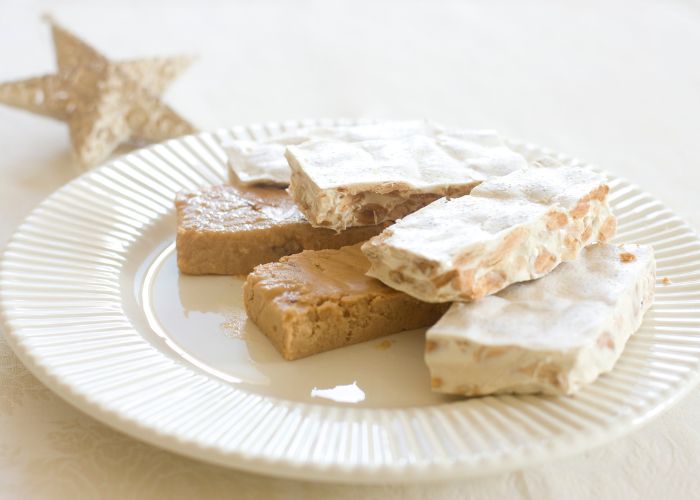Despite various Spanish and European laws, a fair label on products is still difficult. Even with products that are said to be 100% from Spain, certain ingredients appear to come from China and America, including the turrón from Spain.
A product many people associate as a real national product, especially during Christmas, is the turrón from Spain. Turrón is a kind of nougat, consisting of honey, sugar, egg white and almonds. It is a typical Spanish delicacy and is one of the most famous delicacies in Spain.
Spanish turrón not always from Spain
Turrón clearly bears a national, and sometimes even regional, imprint. Yet often with the turrón not everything is what it seems. In fact, much of this turrón appears to be 100% Spanish. But in reality the honey comes from China and almonds from the United States are used in its preparation.
Gray area within Spanish and European legislation
The Spanish agricultural organisation COAG explains that only the origin of a main ingredient must be stated and not of all ingredients. For this reason, the organisation has long urged national and regional governments to state the origin of all ingredients on a label to stop this kind of ‘deception’ of the consumer.
Almonds from the United States of America
Many almond farmers in Spain are being ousted by large American companies not looking at the quality of a product. As if this wasn’t bad enough, turrón manufacturers claim that prices have gone up. Therefore, that is why they have had to raise prices by an average of 10%. However, this increase does not benefit the almond farmers in Spain. The real profit is in the hands of the selling parties.
Related post: Spanish festive sweets and treats
In the 2021 and 2022 season, Spain imported about 120,000 tons of almonds, mostly from the US. This figure is many times higher than the maximum amount Spanish almond farmers can jointly produce (95,000 tons in 2020). This so-called Spanish turrón is then sold in Spain, but also exported to other European countries as a ‘typical Spanish product’.
Honey from China
The same happens with honey, which mainly comes from China. A Spanish beekeeper says that importing honey from China is much cheaper. Moreover, the increasingly warmer climate in Spain is not doing any good for honey production. This year, Spain produced 30 million tons of honey, but in recent years this production has shown a clear downward trend.
The fact that the word China does not have to appear on the label according to Spanish and European legislation means that this honey can be used to make turrón without the consumer knowing. The result of less use of Spanish honey is that there will be fewer and fewer beekeepers, and therefore fewer bees, in Spain, which will disrupt the ecosystem.
Government must commit to 100% Spanish product
The COAG calls on the large turrón companies to stand up for a national product, the ingredients of which all come from Spain. This also means that Spanish farmers and beekeepers must receive a fair price for their product.
The government should work to tighten up the law requiring the origin of all ingredients to be stated. “The Spanish farmers benefit from this and they no longer feel cheated.”


